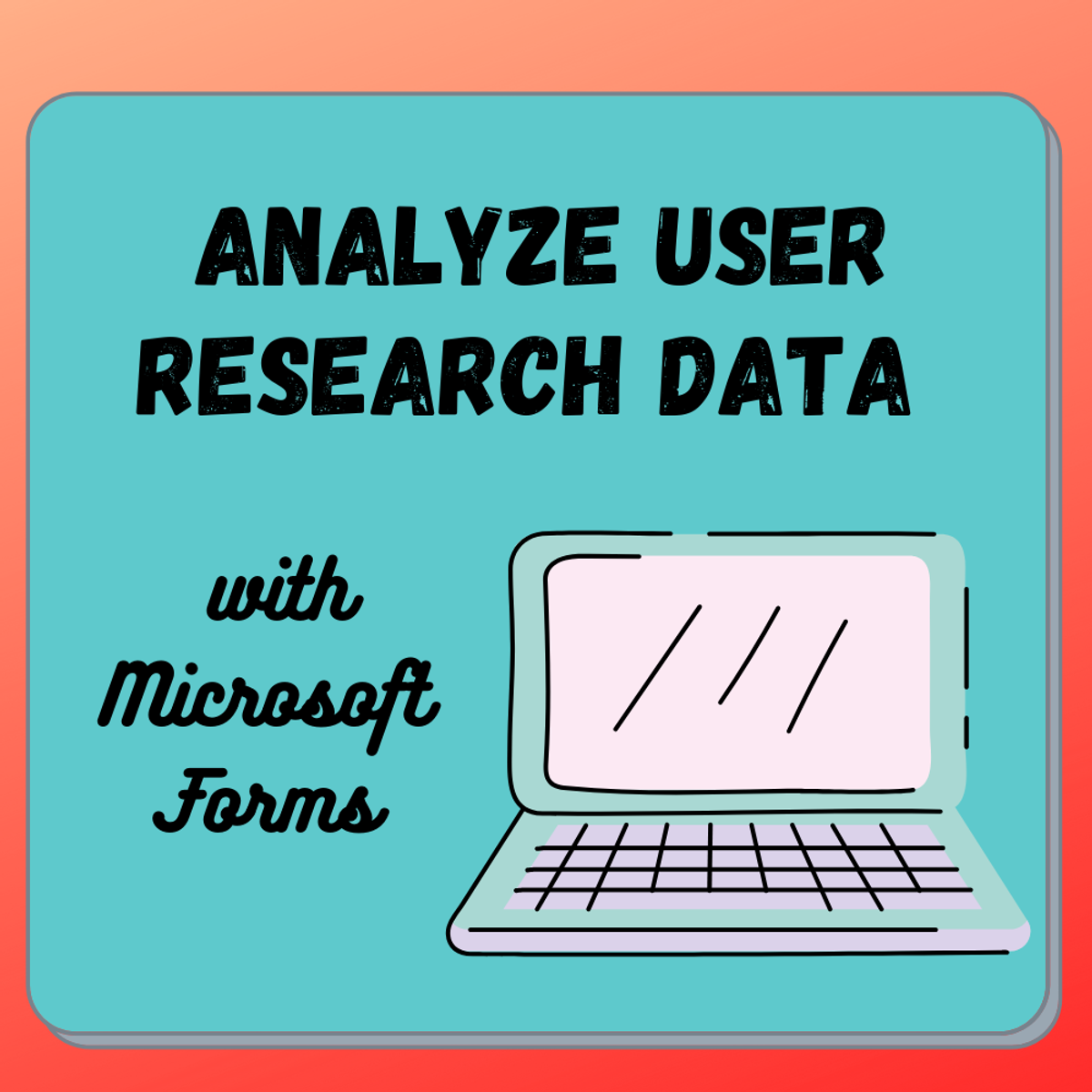Marketing Researcher
Marketing Researcher: A Comprehensive Career Guide
Marketing research is the systematic gathering, recording, and analysis of qualitative and quantitative data about issues relating to marketing products and services. It acts as a crucial link between a business and its customers, providing the insights needed to make informed decisions. By understanding consumer needs, market trends, and competitor activities, companies can develop more effective strategies.
Working as a Marketing Researcher can be deeply engaging. You'll often act like a detective, piecing together clues from data to understand why consumers behave the way they do. This role involves blending analytical rigor with creative thinking to uncover hidden patterns and opportunities. It's a field where curiosity pays off, directly influencing product development, advertising campaigns, and overall business strategy.
Introduction to Marketing Research
Defining the Field and Its Importance
At its core, marketing research involves investigating what people want, need, or believe. It uses various methods, from surveys and interviews to complex data analysis, to understand target audiences and the broader marketplace. This isn't just about collecting data; it's about transforming raw information into actionable intelligence.
Companies rely heavily on this intelligence. Whether launching a new product, entering a new market, or refining an advertising message, solid research minimizes risks and maximizes the chances of success. It helps businesses stay relevant and competitive by keeping them attuned to the ever-changing dynamics of consumer preferences and market conditions.
Marketing research informs critical strategic choices across an organization. Insights derived from research can shape product features, determine optimal pricing, identify the most effective distribution channels, and guide promotional efforts. Essentially, it provides the foundation for customer-centric business operations.
These courses offer a solid starting point for understanding the fundamentals of marketing research and strategy.
Understanding Consumers and Market Dynamics
A key part of marketing research is delving into consumer behavior. Why do people choose one brand over another? What motivates their purchasing decisions? Researchers explore these questions through various techniques, aiming to build a deep understanding of the target audience's psychology and habits.
Understanding consumer behavior often involves studying cognitive processes, social influences, and cultural factors. This knowledge helps companies tailor their offerings and communications more effectively. Books exploring behavioral economics can provide fascinating insights into how people make decisions.
These books delve into the fascinating world of decision-making and behavioral patterns, essential knowledge for any aspiring marketing researcher.
Beyond individual consumers, marketing researchers also analyze broader market trends. This includes tracking competitor actions, monitoring technological advancements, and understanding economic or social shifts that could impact the market. Staying ahead of these trends is vital for long-term business health.
What Does a Marketing Researcher Do?
Core Responsibilities and Daily Tasks
The primary responsibility of a Marketing Researcher is to design, execute, and analyze research studies that address specific business questions. This often starts with defining the problem and determining the best methodology to gather the necessary information. Data collection might involve designing surveys, conducting interviews, organizing focus groups, or analyzing existing datasets.
Once data is collected, the focus shifts to analysis. Researchers use statistical techniques and qualitative analysis methods to interpret the findings. The goal is to uncover meaningful patterns, trends, and insights that can answer the initial research questions and provide clear direction for business actions.
A significant part of the role involves communicating these findings effectively. Researchers translate complex data into clear, concise reports and presentations tailored to different audiences, from marketing teams to senior executives. They make recommendations based on the research outcomes.
These courses provide practical skills in survey analysis and marketing planning, core tasks for researchers.
Collaboration Across Teams
Marketing Researchers rarely work in isolation. They collaborate closely with various departments, including marketing, product development, sales, and strategy teams. This ensures that the research is aligned with business objectives and that the insights generated are relevant and actionable for different functions.
Effective collaboration requires strong interpersonal and communication skills. Researchers need to understand the needs and perspectives of different stakeholders and be able to explain research methodologies and findings in a way that resonates with non-researchers. Building relationships across the organization is key to maximizing the impact of research.
This cross-functional nature makes the role dynamic. Researchers gain exposure to different facets of the business, contributing to a wide range of projects and initiatives. They act as internal consultants, providing data-driven guidance to support decision-making throughout the company.
Typical Outputs and Deliverables
The tangible outputs of a Marketing Researcher's work often include detailed research reports. These documents typically outline the research objectives, methodology, key findings, and strategic recommendations. Clarity and conciseness are paramount to ensure the information is easily digestible and impactful.
Presentations are another common deliverable. Researchers often present their findings to stakeholders, using visuals like charts and graphs to illustrate key points. Increasingly, interactive dashboards are used to allow stakeholders to explore the data themselves, providing ongoing access to insights.
Beyond reports and presentations, deliverables might include customer personas, market segmentation analyses, competitive intelligence briefs, and forecasts. The specific outputs depend on the research project and the needs of the business. Ultimately, the goal is always to provide clear, evidence-based guidance.
Key Skills for Marketing Researchers
Quantitative and Qualitative Proficiency
Marketing research employs both quantitative and qualitative methods, and proficiency in both is highly valuable. Quantitative research involves numerical data and statistical analysis, often using surveys, experiments, or analysis of large datasets to measure attitudes, behaviors, and market size.
Qualitative research, on the other hand, explores underlying reasons, opinions, and motivations. Techniques include in-depth interviews, focus groups, and observational studies. It provides rich, contextual insights that numbers alone might miss. Understanding how and when to use each approach is crucial.
This book provides a foundation for understanding statistical concepts relevant to both quantitative and qualitative analysis.
Many researchers specialize in one area, but a strong understanding of both methodologies allows for more comprehensive research designs and a deeper interpretation of findings. Blending quantitative and qualitative insights often leads to the most powerful conclusions.
Technical Competencies
Technical skills are increasingly important. Proficiency in statistical software packages like SPSS or programming languages such as R or Python is often required for data analysis, especially in quantitative roles.
These books cover data analysis techniques using specific software, which are valuable technical skills.
Data visualization skills are also essential. Researchers need to present complex data in clear, compelling visual formats using tools like Tableau, Power BI, or even advanced features in Excel. Familiarity with survey platforms (e.g., Qualtrics, SurveyMonkey) is also common.
As the field evolves, skills in areas like text mining, machine learning, and managing large datasets (Big Data) are becoming more valuable. Continuous learning is key to staying current with technological advancements.
Essential Soft Skills
Beyond technical abilities, soft skills are critical for success. Strong communication skills, both written and verbal, are necessary to convey complex findings clearly and persuasively to diverse audiences. Active listening is also vital for understanding stakeholder needs and conducting effective qualitative research.
Critical thinking and analytical reasoning are fundamental. Researchers must be able to dissect problems, evaluate information objectively, identify patterns, and draw logical conclusions. They need an innate curiosity and a desire to understand the 'why' behind the data.
Project management skills help researchers manage multiple projects, meet deadlines, and stay within budget. Adaptability and problem-solving abilities are also important, as research rarely goes exactly as planned. These skills are often transferable across various industries and roles, making marketing research a solid foundation for many career paths.
Marketing Researcher Career Progression
Starting Your Career: Entry-Level Roles
Most careers in marketing research begin in entry-level positions such as Research Assistant, Junior Analyst, or Marketing Analyst. In these roles, individuals typically support senior researchers by assisting with tasks like survey programming, data cleaning, basic analysis, and report preparation.
These initial roles provide valuable hands-on experience with different research methodologies and tools. It's a crucial learning phase where foundational skills are honed. Responsibilities gradually increase as proficiency grows, potentially leading to managing smaller research projects independently.
Networking and seeking mentorship are beneficial during this stage. Building connections within the industry and learning from experienced professionals can significantly accelerate career development. Demonstrating a strong work ethic, attention to detail, and eagerness to learn are key to advancing.
Mid-Career Advancement: Specialization vs. Management
As researchers gain experience, typically after 3-5 years, they often face a choice between specializing in a particular area or moving towards management. Specialization might involve focusing on a specific methodology (e.g., quantitative modeling, qualitative ethnography), industry (e.g., tech, healthcare), or research type (e.g., brand tracking, product innovation).
Alternatively, some researchers move into management roles, such as Research Manager or Project Director. These positions involve overseeing research projects, managing teams of analysts, handling client relationships (in agency settings), and contributing to strategic planning. This path requires developing leadership and people management skills.
Both paths offer rewarding opportunities. The choice often depends on individual interests and strengths – whether one prefers deep expertise in a specific domain or broader responsibilities involving team leadership and strategy. Some roles may blend elements of both.
Senior Leadership and Consulting
Experienced Marketing Researchers can advance to senior leadership positions, such as Director of Market Research, Head of Insights, or Vice President of Marketing Intelligence. At this level, responsibilities shift towards setting the overall research agenda, managing larger teams or departments, influencing key business strategies, and managing significant budgets.
Another path for senior researchers is consultancy. Many leverage their expertise to advise multiple clients on research strategy and execution, either by joining established consulting firms or starting their own practices. This offers variety and the opportunity to tackle diverse business challenges.
Regardless of the specific path, senior roles demand a deep understanding of business strategy, strong leadership capabilities, and the ability to translate complex research insights into high-level strategic recommendations that drive business growth.
Formal Education Pathways
Relevant Undergraduate Degrees
A bachelor's degree is typically the minimum requirement for entry-level marketing research roles. Degrees in Marketing are common, providing a good foundation in business principles and consumer behavior. However, backgrounds in other fields are also highly valuable.
Degrees in Statistics, Mathematics, or Economics equip students with the strong quantitative and analytical skills needed for data-heavy research roles. Psychology or Sociology degrees provide a deep understanding of human behavior and social dynamics, which is crucial for qualitative research and interpreting consumer motivations.
Other relevant fields include Communications, Business Administration, or even specific social sciences depending on the industry focus. Regardless of the major, coursework emphasizing research methods, statistics, critical thinking, and communication is beneficial.
Graduate Programs and Certifications
For those seeking more specialized roles or faster career advancement, a master's degree can be advantageous. Master's programs in Marketing Research (MMR) or related fields like Data Science, Business Analytics, or Statistics provide advanced training in research methodologies and analytical techniques.
An MBA with a concentration in Marketing or Analytics can also be a valuable credential, particularly for those aspiring to management or strategic roles. These programs often blend research skills with broader business acumen.
Professional certifications, while not always required, can demonstrate expertise and commitment to the field. Organizations like the Insights Association offer certifications related to market research practices. Specific software certifications (e.g., for analytics platforms) can also enhance a resume.
Consider exploring relevant programs and certifications available through online platforms to enhance your credentials. OpenCourser's Marketing and Data Science browse pages are great places to start.
Doctoral Studies for Research Careers
A Ph.D. is typically pursued by those interested in academic careers (teaching and researching at universities) or highly specialized research roles in industry, particularly in areas requiring advanced quantitative modeling or methodological innovation.
Doctoral programs in Marketing, Statistics, Economics, Psychology, or related fields involve rigorous training in research methodology, theory development, and advanced statistical analysis. Completing a Ph.D. requires significant time commitment and a strong passion for research.
While not necessary for most corporate marketing research roles, a Ph.D. can open doors to senior scientist positions, thought leadership roles within large organizations, or specialized consulting opportunities focused on cutting-edge research techniques.
Alternative Learning Methods
Building Skills Through Independent Projects
Formal education isn't the only path. Aspiring researchers, especially career changers, can build relevant skills through independent projects. Analyzing publicly available datasets, conducting small-scale surveys on topics of interest, or writing blog posts interpreting market trends can demonstrate initiative and practical ability.
Contributing to open-source projects related to data analysis or visualization tools can also showcase technical skills. Building a portfolio of these projects provides tangible evidence of your capabilities to potential employers, complementing or sometimes even substituting for traditional credentials.
Consider leveraging online platforms to find datasets or project ideas. Participating in data analysis competitions or contributing to online communities focused on marketing or data science can provide valuable experience and networking opportunities.
The Role of Online Courses and Certifications
Online courses offer a flexible and accessible way to acquire specific skills needed in marketing research. Platforms like OpenCourser list thousands of courses covering topics from marketing analytics and survey design to statistical software and data visualization.
These courses are excellent for supplementing formal education or for professionals looking to upskill or pivot into the field. Many offer certificates upon completion, which can be added to your resume or LinkedIn profile. You can find courses tailored to various skill levels, from beginner to advanced.
OpenCourser makes it easy to find and compare options. Use the search function to find courses on specific topics, save courses to your list for later review, and read summaries and reviews to choose the best fit for your learning goals.
These courses provide focused learning on specific marketing aspects, ideal for targeted skill development.
Combining Formal and Informal Learning
For many, the most effective approach involves blending formal education with informal learning methods. Supplementing a degree program with relevant online courses, attending industry webinars, reading trade publications, and engaging in independent projects creates a well-rounded skill set.
If you're considering a career change, this blended approach can be particularly powerful. It allows you to build foundational knowledge through structured learning while gaining practical, job-relevant skills quickly. It also demonstrates commitment and proactivity to potential employers.
Transitioning careers takes time and effort. Be patient with yourself, celebrate small milestones, and focus on building skills incrementally. Ground yourself in the reality that learning is a continuous process, but remain encouraged by the progress you make. Resources like the OpenCourser Learner's Guide offer tips on effective self-learning strategies.
Industry Tools and Technologies
Data Analysis Software Landscape
Proficiency in data analysis software is crucial for most Marketing Researchers. Traditional statistical packages like SPSS remain widely used, particularly in corporate and academic settings, for tasks like survey analysis and statistical modeling.
However, open-source programming languages like R and Python (with libraries like Pandas, NumPy, SciPy, Scikit-learn) have gained significant traction. They offer greater flexibility, powerful analytical capabilities, and are essential for handling large datasets and implementing machine learning techniques.
This book provides a practical guide to using R for regression analysis, a common task in marketing research.
Spreadsheet software, primarily Microsoft Excel, is also a staple for basic data manipulation, visualization, and reporting. Familiarity with database query languages like SQL is often needed for accessing and retrieving data from company databases.
Survey and Data Collection Platforms
Online survey platforms are indispensable tools for primary data collection. Tools like Qualtrics, SurveyMonkey, Google Forms, and Typeform allow researchers to easily design, distribute, and collect survey responses. Advanced platforms offer features like complex logic, panel integration, and basic analysis capabilities.
Beyond surveys, researchers might use tools for qualitative data collection, such as video conferencing platforms for remote interviews or specialized software for analyzing text from focus groups or social media.
Choosing the right platform depends on the complexity of the research, budget, and specific features required, such as multi-language support or advanced analytical options. Understanding the capabilities and limitations of different tools is important.
These courses offer hands-on experience with survey creation and analysis using common tools.
Emerging Technologies: AI and Automation
Artificial intelligence (AI) and machine learning are increasingly impacting marketing research. AI can automate tasks like data cleaning, transcription, and basic analysis, freeing up researchers for higher-level thinking. Machine learning algorithms are used for predictive modeling, customer segmentation, and analyzing unstructured data like text or images.
AI-powered tools are emerging for tasks like sentiment analysis of social media data, generating survey questions, or even creating initial drafts of research reports. While these tools offer efficiency gains, human oversight and critical interpretation remain essential.
Researchers need to understand the potential and limitations of these technologies. Developing skills in data science and AI, or at least understanding how these tools work and how to leverage them effectively, will be increasingly important for future success in the field.
Ethical Considerations in Marketing Research
Navigating Data Privacy Regulations
Data privacy is a critical ethical and legal concern. Researchers must be knowledgeable about regulations like the GDPR (General Data Protection Regulation) in Europe and CCPA (California Consumer Privacy Act) in the US, among others globally. These laws govern how personal data can be collected, stored, used, and shared.
Ensuring compliance involves obtaining informed consent from research participants, anonymizing data where possible, implementing robust data security measures, and being transparent about how data will be used. Violations can result in significant fines and damage to reputation.
Ethical researchers prioritize participant rights and data protection throughout the research process, from design to reporting. Staying updated on evolving privacy laws and best practices is an ongoing responsibility.
Mitigating Bias in Research
Bias can creep into research at various stages, potentially skewing results and leading to flawed conclusions. Researchers must actively work to mitigate bias in sampling (ensuring the sample represents the target population), question design (avoiding leading or loaded questions), data collection (preventing interviewer bias), and analysis (interpreting results objectively).
Awareness of potential cognitive biases (like confirmation bias) in oneself and stakeholders is also important. Rigorous methodology, diverse team perspectives, and transparency about potential limitations help minimize the impact of bias.
Ethical research strives for objectivity and fairness. This commitment ensures that the insights generated are accurate and reliable, leading to better business decisions and avoiding potentially harmful stereotypes or misrepresentations.
Transparency and Honesty in Reporting
Ethical reporting involves presenting research findings accurately and completely, including any limitations or unexpected results. Researchers should avoid selectively reporting data that supports a preferred outcome or downplaying findings that challenge existing assumptions.
Transparency extends to methodology. Clients and stakeholders should understand how the research was conducted, allowing them to assess the validity and reliability of the findings. This builds trust and credibility.
Maintaining integrity in reporting is crucial, even when findings are unfavorable or unpopular. The role of the researcher is to provide objective, evidence-based insights, enabling informed decision-making, regardless of whether the news is good or bad.
Marketing Research in Global Markets
Adapting Research to Cultural Contexts
Conducting research across different countries and cultures presents unique challenges. Methodologies, survey instruments, and communication styles often need adaptation to account for cultural norms, language differences, and varying levels of technological access.
What works in one market might not work, or might even be offensive, in another. Researchers need cultural sensitivity and awareness to design studies that are appropriate and yield meaningful results. This often involves collaborating with local experts or partners.
Understanding nuances in consumer behavior driven by cultural values is key. Direct translations of surveys can fail; careful adaptation and pre-testing are necessary to ensure questions are understood as intended and concepts resonate appropriately across diverse populations.
Opportunities in Emerging Markets
Emerging markets offer significant growth opportunities for businesses, and consequently, for marketing research. Understanding consumer needs and market dynamics in these rapidly evolving economies is crucial for successful market entry and expansion.
Research in emerging markets may require adapting methodologies due to factors like lower internet penetration, diverse local languages, or different retail structures. Researchers might need to employ more face-to-face interviews or mobile-based surveys.
Despite the challenges, insights from emerging markets can be highly valuable, uncovering unmet needs and driving innovation. Researchers with experience in these regions are increasingly sought after.
This course helps innovators identify and evaluate market opportunities, relevant for both domestic and international expansion.
Remote Research Methodologies
Technological advancements have facilitated remote research across borders. Online surveys, virtual interviews, and digital ethnography allow researchers to gather insights from global audiences without extensive travel. This can be more cost-effective and faster than traditional methods.
However, remote methods also have limitations. Building rapport can be more challenging in virtual interviews, and access to technology might exclude certain population segments. Researchers need to choose methods appropriate for the research objectives and the specific cultural and technological context.
The ability to design and manage effective remote research projects is becoming an increasingly valuable skill, particularly for companies operating in multiple international markets.
Frequently Asked Questions
What are typical salary expectations for Marketing Researchers?
Salaries vary significantly based on experience, education, location, industry, and company size. Entry-level positions (e.g., Analyst) might start around $50,000 - $70,000 USD annually. Mid-career roles (e.g., Manager) often range from $80,000 to $120,000+. Senior leadership positions (e.g., Director, VP) can exceed $150,000, sometimes reaching well over $200,000. Data from sources like the U.S. Bureau of Labor Statistics (BLS) for Market Research Analysts provides specific national and regional estimates, though titles and responsibilities can vary.
What is the job demand outlook for Marketing Researchers?
The outlook is generally positive. The BLS projects employment growth for market research analysts to be much faster than the average for all occupations through the next decade. Businesses increasingly recognize the value of data-driven decision-making, fueling demand for professionals who can gather, analyze, and interpret market and consumer data. Skills in data analytics, digital marketing research, and understanding emerging technologies are particularly in demand.
Is it possible to transition into marketing research from related fields?
Yes, transitions are common. Professionals from fields like data analysis, business analysis, psychology, sociology, statistics, or even journalism often possess transferable skills. Highlighting analytical abilities, communication skills, and any experience with data or research methods is key. Pursuing relevant online courses or certifications can help bridge specific skill gaps and demonstrate commitment to the field.
What are the opportunities for freelance or consulting work?
There is a healthy market for freelance and consulting work in marketing research. Many companies hire independent researchers or small consultancies for specific projects. Experienced researchers can build successful practices specializing in particular industries or methodologies. Freelancing offers flexibility but requires strong business development, project management, and self-discipline skills.
How is automation and AI impacting the role?
AI and automation are changing aspects of the job, particularly routine tasks like data collection, cleaning, and basic analysis. However, they are unlikely to replace researchers entirely. Instead, they are shifting the focus towards higher-level skills like strategic thinking, complex problem-solving, interpreting nuanced findings, storytelling with data, and ethical oversight. Researchers who adapt and learn to leverage these new tools will be most valuable.
Are there essential certifications for this career?
While no single certification is universally required, some can enhance credibility. The Insights Association offers the Professional Researcher Certification (PRC). Certifications in specific software (like Google Analytics, Tableau) or methodologies (like qualitative research moderation) can also be beneficial, depending on your area of focus. Often, demonstrated skills and experience carry more weight than certifications alone.
Marketing research offers a dynamic and intellectually stimulating career path for those curious about consumer behavior and driven by data. It requires a blend of analytical rigor, communication finesse, and business acumen. While challenging, the ability to uncover insights that shape strategies and drive business success makes it a rewarding field for analytical and inquisitive minds.

















